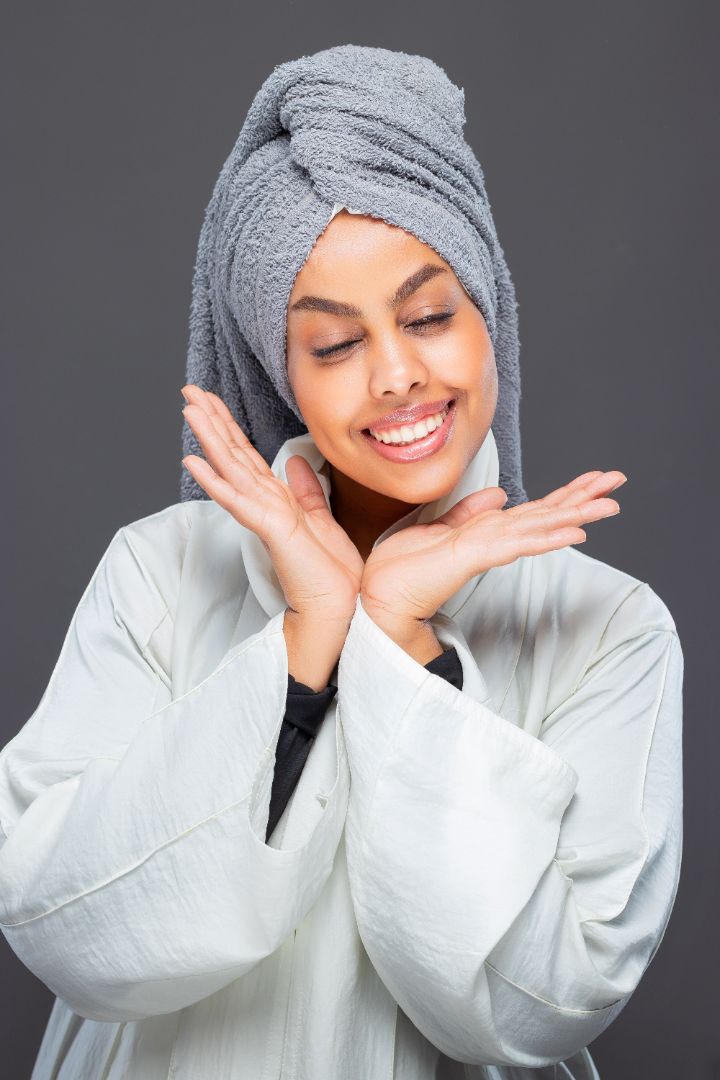-
-
Moisturizer for Acne: Complete Guide, Types & Expert Tips (2025)
Posted on Huda Ahmed -

Qasil for Hair: Natural Hair Masks and Shampoo Alternatives
Posted on hamiid apdi


Here at Huda Organics, qasil is our forever love. It’s our one and only; it’s our true ride or die.
She cleanses. She exfoliates. She brightens. She fights breakouts. She treats hyperpigmentation. She’s basically that one girl at school that seems to be good at everything…
We’re here to tell you that even that girl has something she can’t do…like, at all.
So, if qasil were to take a test, what subject would she fail? The answer: PROTECTING YOU FROM THE SUN!
We’ve received questions about whether qasil can protect you from the sun or if it can undo severe damage caused by years of continual sun exposure. To put it plainly, it can’t and it would be wildly irresponsible of us to make those claims.
Sunscreen is undeniably the most important step in any skincare routine. It really doesn’t matter whatever lotions or potions you slather yourself in if you don’t follow them up with an SPF.
Here’s why…
Did you know that the sun emits both UVA and UVB rays? UVA rays are linked to the increased risk of skin cancer and premature ageing. UVB rays are directly correlated to sunburn and discolouration. SPF protects the skin from harmful UVA and UVB rays by either absorbing or reflecting sunlight.
The term ‘health is wealth’ often refers to maintaining a healthy diet and an active lifestyle. But what about your skin’s health? The skin is the largest organ in your body, and it’s just as integral to your overall wellbeing as any other. SPF is the first line of defence against the harmful rays that increase the risk of skin cancer.
The Skin Cancer Foundation claims that daily use of sunscreen with an SPF of 15 or above reduces your risk of different types of skin cancer significantly. In the case of squamous cell carcinoma, the risk decreases by 40%, and for melanoma, it decreases by 50%.
Exposure to UVA rays leads to discolouration and hyperpigmentation, both of which cause an uneven complexion. Certain parts of the skin may look blotchy and irritated, while others may have dark spots. Daily use of sunscreen prevents the formation of new dark spots and reduces the chances of any existing irritation or redness from becoming worse.
The sun is the number one cause of ageing throughout our lifetimes, as its rays contribute to the breakdown of the skin’s collagen. Collagen is critical in maintaining the skin’s elasticity and plumpness. The Skin Cancer Foundation found that people who used an SPF of 15 or above, on a daily basis, reported 24% less skin ageing than those who rarely used sunscreen.
Sunscreen also reduces the signs of ageing in the skin by protecting the skin’s moisture barrier from excessive water loss. When the sun’s harmful rays come into contact with the skin, they draw out any available moisture. This causes transepidermal water loss that leads to the skin becoming dehydrated. Dehydration in the skin can cause it to look dry, flakey and dull, which only exacerbates the look of any fine lines and wrinkles.
Nothing about sunburn is cute - it’s just painful. Spending too much time in the sun without adequate protection causes inflammation in the skin. This inflammation results in pain, redness, itchiness, peeling, and in some cases, even bleeding in the skin. Thankfully, sunburn usually results in temporary discomfort that passes, depending on the severity, within a few days or weeks. Consistent and unprotected exposure to the sun, however, resulting in sunburn, has a compounding negative effect on the skin. This not only accelerates the process of ageing into light-years, but it also leads to an increase in sun cancer.
The bottom line is…
In the words of one of our favourite Youtube beauty gurus, Cassandra Bankson: SPF is your BFF.